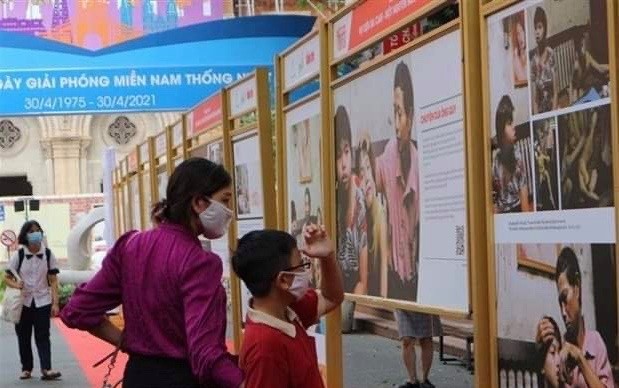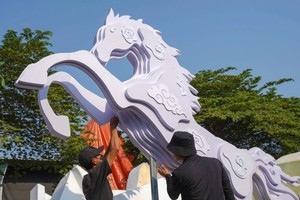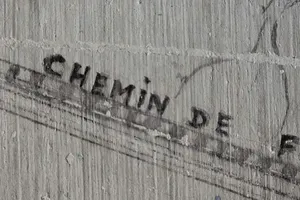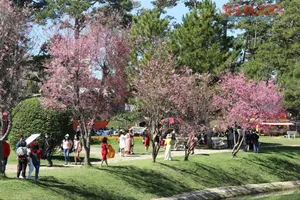
The event is jointly organised by the Tre (Youth) Publishing House, Tuoi Tre (Youth) Newspaper and Duong Sach Co., Ltd. in HCM City.
On display are over 100 documents, photos, illustrations selected from the documents of newspapers, witnesses, researches, and the War Remnants Museum, which depict the entire information and statistics on long-term effects of AO/dioxin on humans, nature, and the environment.
Many images help visitors understand more about the AO herbicide containing toxic dioxin, which has left devastating impacts on millions of Vietnamese.
Many photos and documents also describe the progress of the lawsuit, legal and scientific foundations, the companionship and support of friends around the world, and AO victims for the lawsuit.
The organisers said that visitors can scan QR codes on each document and image at the exhibition to get more information from the archives, thus helping them better understand about the chemical and the lawsuit.
Nga, born in 1942, filed the lawsuit in May 2014. Among the companies named in her suit, there are such names as Monsanto (now under the Bayer Group of Germany) and Dow Chemical.
With the support of several non-governmental organisations, Nga accused the companies of causing lasting harm to the health of her, her children and countless others, as well as destroying the environment.
Among her three children, the first child died of heart defects and the second suffers from a blood disease.
On April 16, 2015, the Crown Court of Evry city held the first hearing on the case, but since then, lawyers for the chemical companies have tried every way to draw out procedures.
The trial was scheduled to open in October 2020 but was postponed due to the COVID-19 pandemic.
From 1961-1971, US troops sprayed more than 80 million litres of herbicides - 44 million litres of which were AO, containing nearly 370 kilograms of dioxin - over southern Vietnam.
As a result, around 4.8 million Vietnamese were exposed to the toxic chemical. Many of the victims have died, while millions of their descendants are living with deformities and diseases as a direct result of the chemical’s effects.
Nga claims compensations for health problems.
The French court is expected to rule on the lawsuit on May 10.
























